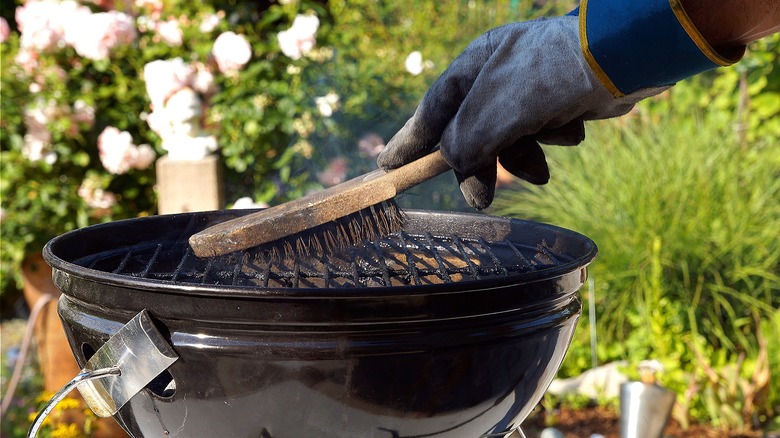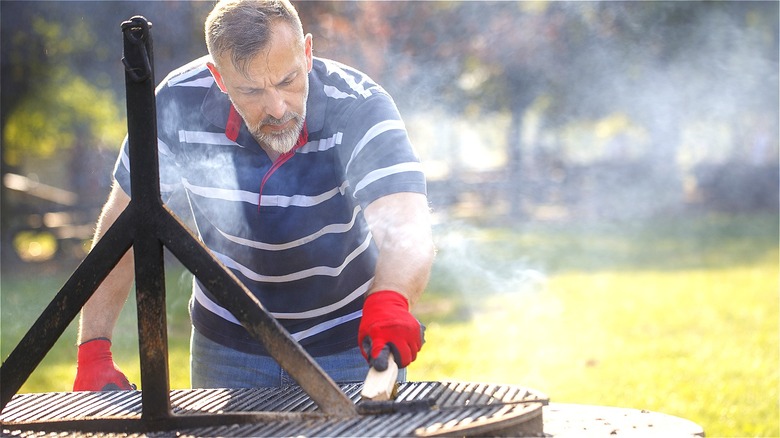Are You Cleaning Your Grill At The Right Time?
You just whipped up an epic barbeque feast in your outdoor kitchen that would make Bobby Flay drool. However, before you dig into your famous beef brisket, stacked chicken kabobs, and sizzling steak branded with perfect sear marks, it's time to clean your grill. Scraping and scrubbing while the rest of the family is munching and crunching? Sure, the timing may not seem ideal, but when it comes to easy cleaning you need to strike when the grill is still warm. The best time to sanitize your grill is right after you've used it, as the heat from cooking will loosen leftover food and prevent it from gunking up the grates.
Sure, cleaning a grill while you're starving may not seem like a recipe for success, but even a quick scrub will go a long way to keep you and your family safe while simultaneously improving your grill's performance and potentially extending its life span. Think about it: Your grill is an extension of your home; a tool to craft edible masterpieces from portobello pizza to shrimp tostadas. And even if you simply use it for everyday hamburgers and hot dogs, a cornucopia of grease, rancid meat juice, marinade residue, and burnt bits from previous grilling sessions can foster mold and bacteria growth.
Contrary to popular belief, you can't rely exclusively on high temperatures from your current grilling venture to self-clean incinerated food from your last meal. Proper grill cleaning involves heat, elbow grease, and the right timing.
Clean your grill while it's still warm
Whether you're cooking on a gas, charcoal, or flat-top grill, don't procrastinate when it comes time to clean. Once you've removed all of the food items, grab a metal grill brush — if you're concerned about stray metal bristles falling on the grates, use a hardwood scraper or balled-up aluminum foil — and methodically scrub off leftover food particles and caked-on grease. Doing this while the grill is still warm will make the task exponentially easier than if you wait until it's completely cool and the residue has time to harden.
Flat-top grills, which don't feature gaps like traditional grills, are especially hard to clean once they've cooled down as their solid surface becomes a reservoir for loose food debris, marinades, and sauces to accumulate. It's best to keep the grill's heat on for a few minutes after transferring all food items to a serving dish. Next, scrape off any crusted or densely coated areas. All remaining drippings can be removed by sprinkling a generous amount of salt on the flat top while it's warm — not burning hot. The salt will absorb residual grease and liquids and can be wiped up with a sponge or paper towels once the grill surface is cool to the touch.
Finally, routine scrubbing when the grill is still warm isn't a substitute for deep cleaning. Aim to thoroughly clean every six months or so depending on how often you barbeque.

